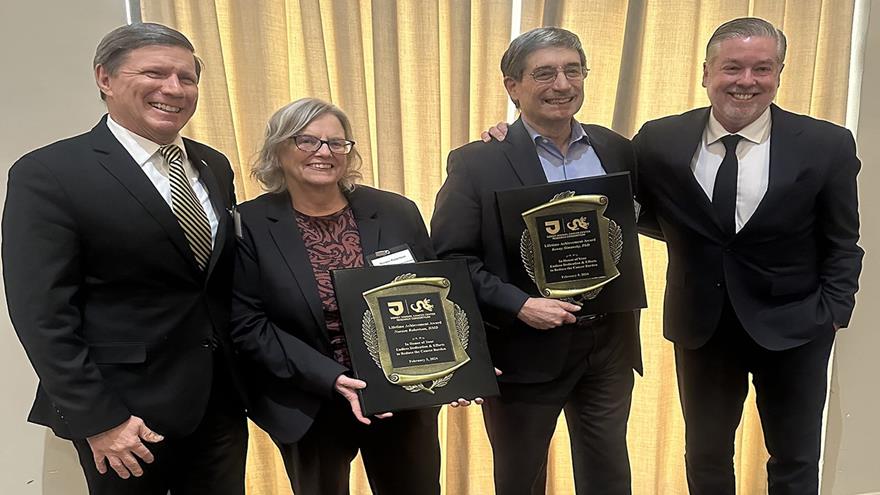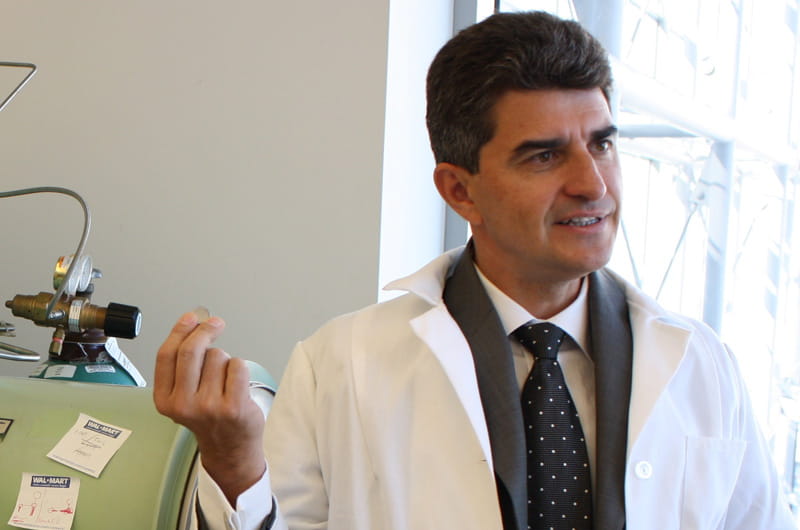Employee Spotlight: Yury Gogotsi

- Bolstered by Research Consortium with Drexel, Jefferson’s Sidney Kimmel Cancer Center Earns NCI Comprehensive Cancer Center Designation
- Alyssa Kemp Named as 2024 Truman Scholar
- Faculty Highlights: Recent Awards and Grants
- Through Connections and Community, Drexel Course Helps Launch Computer Lab in Tanzania
Before Yury Gogotsi, PhD, even reached the United States, he’d earned three degrees in his native Ukraine.
On top of that, he then accepted fellowships and research positions in Germany, Japan and Norway. With extensive experience engaging in research collaborations all over the globe, Gogotsi, now a Distinguished University and Trustee Chair Professor in the College of Engineering and director of the A.J. Drexel Nanomaterials Institute, knows first-hand how important international research and networking can be. That’s why he’s applying his knowledge to help Drexel expand its presence and partnerships internationally.
“Years ago, when meeting my American colleagues, I felt there was a lack of interest in research or study abroad,” said Gogotsi, who arrived at Drexel in 2000. “I met students who seemed to be kind of indifferent — the impression was that the U.S. was above the rest of the world in research, so why bother? But things have changed dramatically now.”
After helping start one of Drexel’s first international research collaborations at the Drexel-SARI Center in Shanghai, China, in 2013, Gogotsi served as lead investigator on a proposal to create Drexel’s newest international partnership.. Drexel beat dozens of other international universities and centers to win the bid for a collaboration with the Korea Advanced Institute of Science and Technology (KAIST), which will include an exchange of students for graduate and undergraduate co-op starting this fall. Gogotsi will co-direct this international co-op center with MinJun Kim, PhD, a professor in the College of Engineering.

“If Drexel wants to be a top research powerhouse, it cannot avoid working internationally,” Gogotsi said. “If you see what top universities in this country are doing, they started these international collaboration initiatives before Drexel did. This KAIST partnership shows we can compete against and beat those institutions. I hope this is just the beginning.”
Gogotsi started Drexel’s nanotechnology research and education efforts in Drexel’s Department of Materials Science and Engineering. Since then, he’s seen the University’s reputation grow both in his field and as a whole. His lab has created externally funded partnerships with Australia, China, England, France, Japan, Korea, Qatar and Saudi Arabia, among others. Now more than ever, his lab is full of both international and U.S. students who have conducted research and/or attended conferences abroad during their studies.
“It helps if students are internationally competitive in whatever jobs they have, whether in academia or at a major corporation,” Gogotsi said. “Students really understand that in research, you cannot be the best in Philadelphia or at Drexel. You’re either the best in the world or you trail behind someone.”
Many students in Gogotsi’s lab have benefitted from his own international research experience. Two of his PhD students have worked and published several joint papers with the post-doc advisor Gogotsi worked with more than 20 years ago at the Tokyo Institute of Technology. Gogotsi will visit him this fall when he speaks at a conference at the Taiwanese university where he currently works.
“Interactions continue many years down the road,” Gogotsi said. “I see exactly the same thing happening with my students. It’s exciting to see these relationships develop.”
This piece first appeared in Drexel Quarterly's Fall 2015 issue.
In This Article
Drexel News is produced by
University Marketing and Communications.
